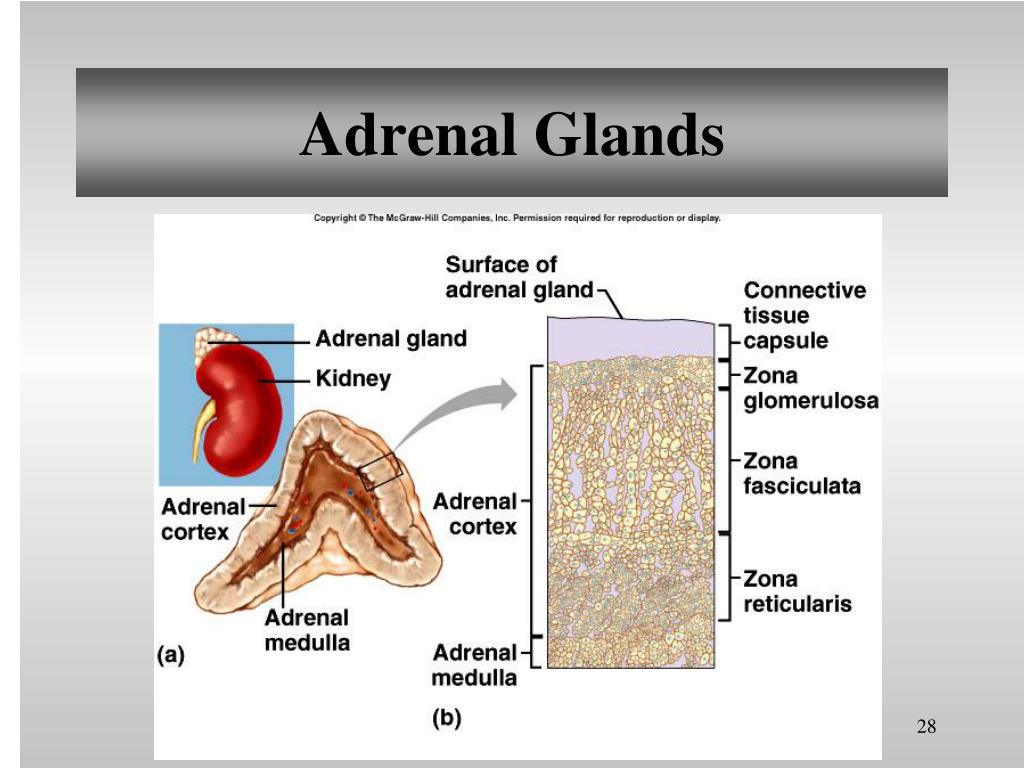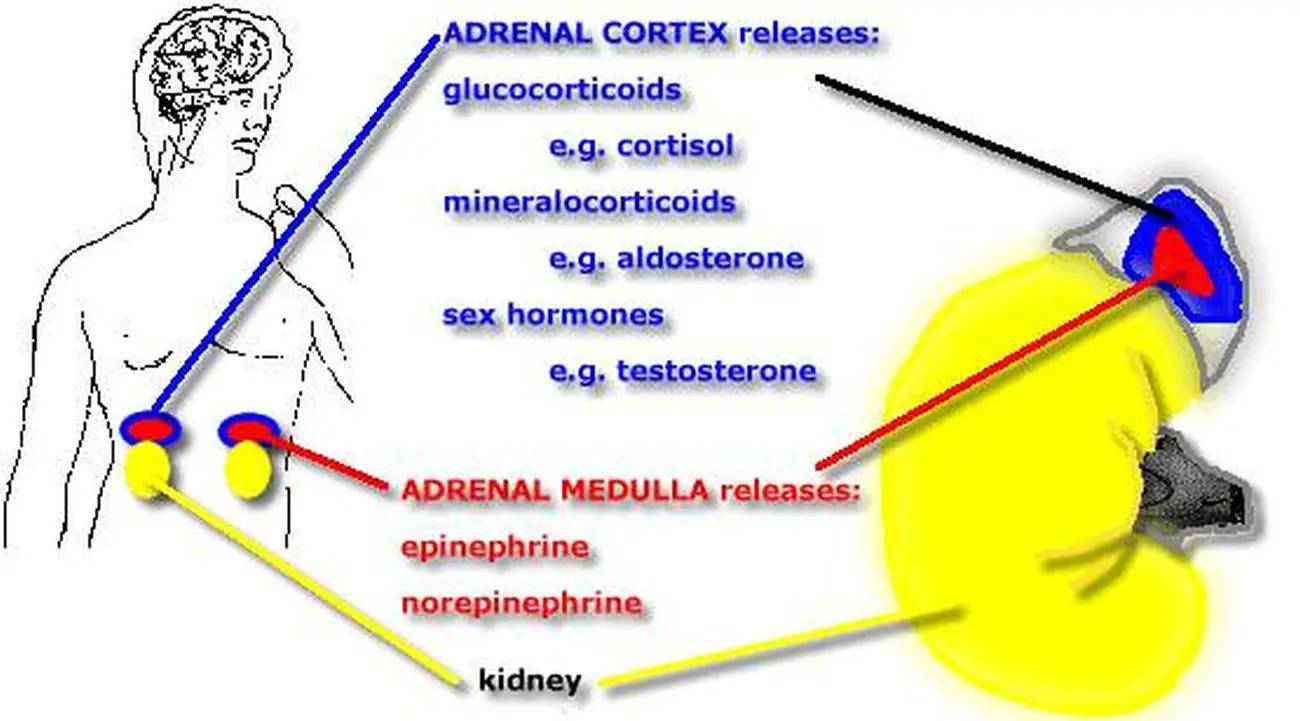


The main endocrine function of the pancreas is to control your blood sugar levels. The pancreas is an exocrine and endocrine gland. Your pancreas is a long gland found behind your stomach, under your liver. It helps keep your circadian rhythm (your internal body clock). Your pineal gland is a very small gland near the centre of your brain. Your adrenal glands sit on top of your kidneys. Your parathyroid glands are 4 small glands in your neck that regulate calcium levels in your blood.

Hormones made in your thyroid influence your: Your thyroid is a gland found in the front of your neck. They release different hormones that have many different actions. The other endocrine glands are found in various places in your body.

What are the other endocrine glands and what do they do? Your pituitary gland also stores and releases some of the hormones made by your hypothalamus, including: What hormones does my pituitary gland make? vasopressin (also called anti-diuretic hormone).growth hormone releasing hormone (GHRH).Hormones made in the hypothalamus include: The hypothalamus and the pituitary gland also make some hormones that don’t directly act on other glands in the body. The pituitary gland in turn controls many of the other endocrine glands, including your: Some of the hormones released by your hypothalamus help control your pituitary gland, also known as the ‘master gland’. The hypothalamus is connected to the pituitary gland (a small gland at the base of your brain) by a stalk. The hypothalamus is an area of your brain that links your brain to your hormonal system. Nursing Times 117: 8, 54-58.Īuthors: Maria Andrade is honorary associate professor in biomedical science Zubeyde-Bayram Weston is senior lecturer in biomedical science John Knight is associate professor in biomedical science all at College of Human and Health Sciences, Swansea University.The endocrine system. This article, the fourth in an eight-part series on the endocrine system, explores the anatomy and physiology of the adrenal glands, and describes how they regulate and coordinate vital physiological processes in the body through hormonal action.Ĭitation: Andrade M et al (2021) Endocrine system 4: adrenal glands. The endocrine system consists of glands and tissues that produce and secrete hormones to regulate and coordinate vital bodily functions. This article comes with a self-assessment enabling you to test your knowledge after reading it This article, the fourth in an eight-part series, looks at the adrenal glands. The endocrine system comprises glands and tissues that produce hormones for regulating and coordinating vital bodily functions.


 0 kommentar(er)
0 kommentar(er)
